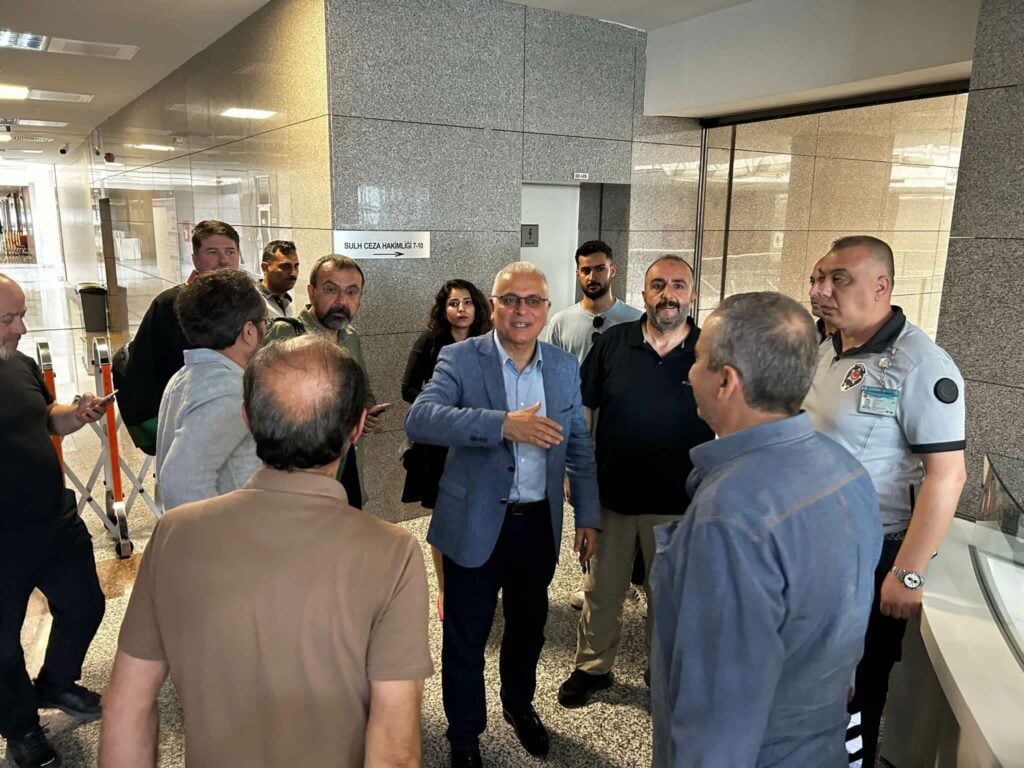The European Federation of Journalists (EFJ) has called for the immediate release of journalist Merdan Yanardağ, the editor-in-chief of Turkish broadcaster TELE1, who was arrested on Tuesday over his televised remarks regarding Abdullah Öcalan, the imprisoned leader of the outlawed Kurdistan Workers’ Party (PKK).
Yanardağ is facing charges of “praising crime and a criminal” as well as “disseminating propaganda for a terrorist organization” based on his comments about Öcalan during a June 20 broadcast on TELE1. Yanardağ had said that Öcalan should have been released if the Law on the Execution of Punishments and Security Measures was abided by, and he criticized the legal basis for the isolation imposed on Öcalan.
The “isolation” of Öcalan, who has been jailed in a high-security prison on İmralı Island in the Sea of Marmara since 1999, refers to his inability to speak with his lawyers for years.
After spending a night in police custody, Yanardağ was taken to the Çağlayan courthouse in İstanbul for questioning by the prosecutor’s office. The court ordered Yanardağ’s arrest at the request of the prosecutor.
In addition, Ebubekir Şahin, chairman of Turkish broadcasting regulator RTÜK, announced on Sunday that an investigation had been launched into TELE1 due to Yanardağ’s remarks. Şahin argued that Yanardağ had “praised the terrorist leader.”
EFJ President Maja Sever expressed the federation’s strong stance on the matter, stating, “We demand the immediate release of journalist Merdan Yanardağ, who was only doing his job by commenting on the state censorship of Abdullah Öcalan in Turkey. Our colleague was absolutely right to express his doubts about this censorship. We fully share his feelings. His imprisonment is a totally disproportionate act of repression and intimidation. It is not only a violation of press freedom but also a serious attack on freedom of expression and the right of Turkish citizens to be informed.”
The arrest of Yanardağ has drawn international attention to the ongoing concerns about press freedom and freedom of expression in Turkey. The EFJ’s call for his release adds to the growing chorus of voices urging Turkish authorities to uphold these fundamental rights.

